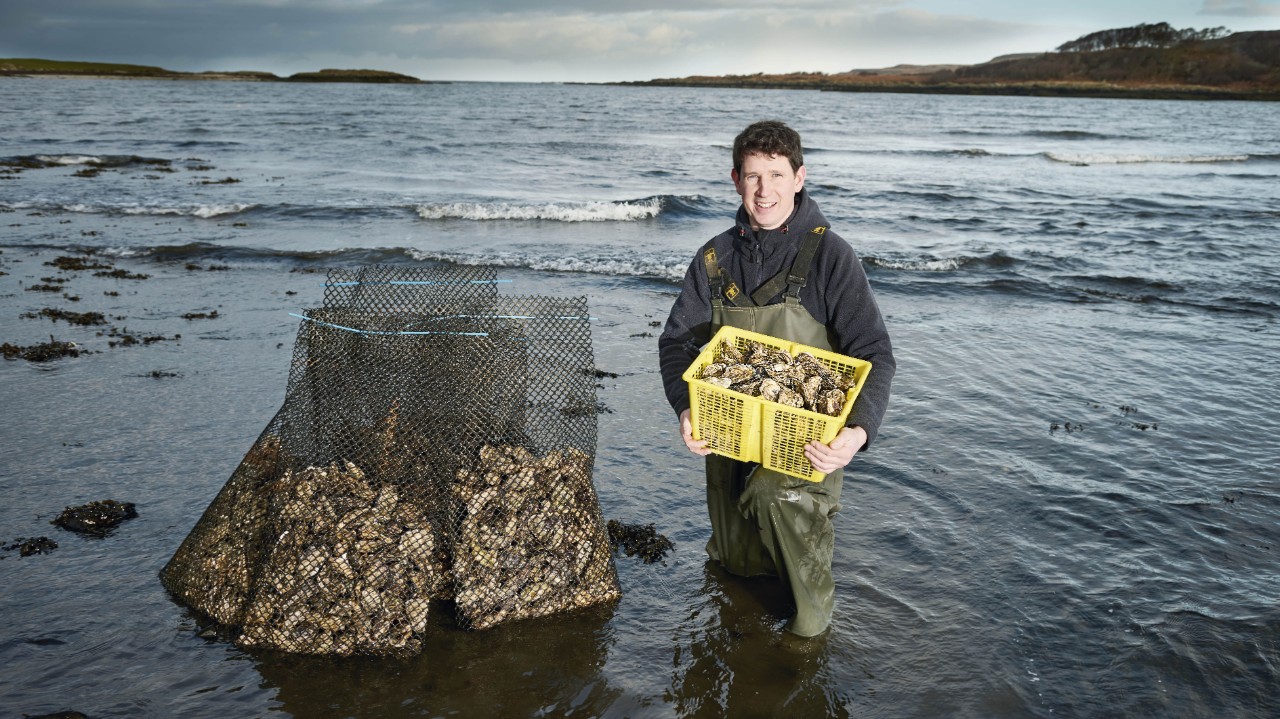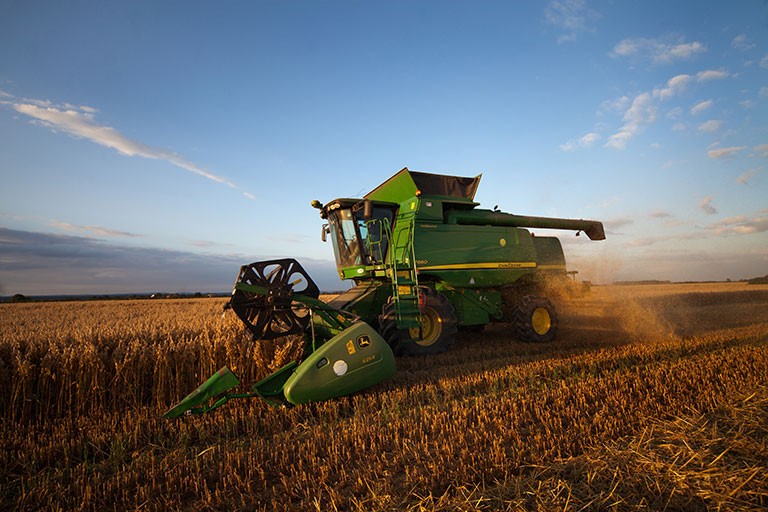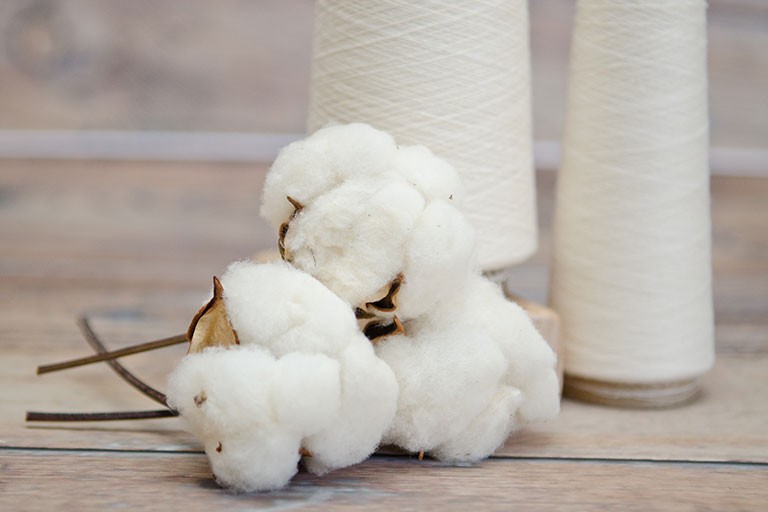Aquaculture & Fisheries
Through our long-standing and trusted relationships with our suppliers and close cooperation with the fishing industry including fish farmers, governments, academics, and non-governmental organisations, we are helping drive positive change to conserve and ensure the sustainable use of the oceans and marine resources for generations to come.
Our Strategy
We are committed to the responsible sourcing of all fish and seafood supplied to our Partnership. This includes all our own label fresh fish, prepacked, frozen, canned and ingredients in ready meals, sandwiches and any other prepared food. As members of the Sustainable Seafood Coalition, we only work with fisheries and aquaculture farms that share our commitment to responsible sourcing.
We aim to drive positive change in a wide array of sustainability and ethical matters relating to aquaculture and fisheries. We’ve set a target to ensure that 100% of our own-brand fish and shellfish will come from third-party verified responsible sources by the end of 2025.
Fishing Responsibly
Waitrose only sources fish that has been responsibly caught or farmed. We risk-assess each fishery or farm against our responsible seafood policy before it is approved. Each fishery or farm is reviewed on an annual basis.
To be termed ‘responsible’ at Waitrose, our fish must meet the following criteria:
- A species that is not regarded as threatened, endangered or critically endangered.
- Caught using a responsible fishing method.
- Caught from a well-managed fishery or responsible farmed aquaculture production.
- Fully traceable from catch to consumer.
- Farmed under conditions that maximise the health & well being of the fish.
- Caught from legally compliant fisheries
- Farmed using responsible sources of feed.
- Independently certified to a Waitrose-recognised third party standard, or engaging in improvements (such as a Fishery Improvement Project) that will help it achieve certification by the end of 2025.
- Caught or farmed in a manner that is socially responsible, protecting the welfare and safety of those working in the supply chain
- Meets our commitments under the Sustainable Seafood Coalition voluntary code of conduct on environmentally responsible fish and seafood sourcing.
Waitrose suppliers must also ensure that fish are caught using methods that ensure that the associated habitat or ecosystem is maintained, this includes:
- Minimising by-catch and discards of fish
- Avoiding capture of non-targeted species (i.e. coral, sea birds, marine mammals), to minimise discards and avoid capture of immature/undersized fish
- Limiting damage to surrounding habitats and ecosystems.
- No pair trawling (for pelagic fish such as sea bass), beam trawling, or pulse trawling using electricity.
- No inappropriate use of fish aggregation devices (FADs), for example use of FADs with purse seining.
- No suppliers, at any point in the supply chain, are linked to the commercial culling of seals, walrus and other marine mammals or have association with companies involved with such culling.
- No suppliers, at any point in the supply chain, are linked to commercial whaling or have association with companies involved with commercial whaling
- No suppliers, at any point in the supply chain, are linked to shark finning (that is the removal of fins from a shark and then throwing the rest of the body back into the sea) or handling / use of shark fin products
- No wild capture of warm water prawns
We support the introduction of marine reserves as a key tool in ensuring the ecological health of the oceans.
Transparency, Traceability, and Illegal, Unreported and Unregulated (IUU) Fishing
Our Partnership voluntarily discloses a list of all our wild-caught, farmed fish and shellfish sourcing via the Ocean Disclosure Project (OPD). We are working hard to increase traceability requirements within fish supply chains supplying the Partnership. Our suppliers are working towards the Global Dialogue on Seafood Traceability (GDST) standards: the first ever global industry standards for seafood traceability.
All farms, fishing vessels and other operators in our supply chains must be legally compliant.This is an essential step in preventing criminal activity that causes serious economic losses, undermines conservation efforts in fisheries, and damages the food security of nations and individuals. For wild caught fish this includes the requirement that fish must only be sourced from fisheries that fully comply with legislation designed to prevent, deter and eliminate IUU (Illegal, Unreported and Unregulated) fishing. For aquaculture produced seafood this includes checks that farms supplying us have the appropriate licences to operate and are fully complying with these.
Our Partnership is also implementing the voluntary code of practice (PAS 1550:2017): developed collaboratively by WWF, Environmental Justice Foundation (EJF), The Pew Charitable Trusts, Oceana and seafood industry representative, it is designed to help industry assess and mitigate the risks posed by IUU fishing in supply chains.
Protecting the Welfare and Safety of Those Working in the Fishing Sector
We are committed to the human rights, safety and well being of all crew: our aim is that all British fishing vessels supplying Waitrose own-brand fish adopt the Responsible Fishing Vessel Standard. This newly revised scheme is a vessel standard that enables commercial fishing operations to provide assurance of decent working conditions and operational best practice through independent, third-party auditing.
Aquaculture Policies

We strongly believe that taking care of the welfare of our farmed fish is what ensures the quality of the fish we sell. Our farmed fish buying policy supports the development of responsible aquaculture, focusing on high standards of animal welfare and minimising the impact on the environment and delicate marine ecosystems.
Our sourcing policy covers four key areas, including only sourcing fish from known and approved farms, rearing fish to the highest animal welfare using responsible feeds and feeding regimes, and respecting the environment.
All Waitrose seafood produced by aquaculture is third party certified as responsibly farmed. We recognise a number of independent third party standards including Global Gap certification, Global Aquaculture Alliance Best Aquaculture Practice for farmed fish, Aquaculture Stewardship Council and Organic standards. We also require all UK farmed salmon and trout to be RSPCA assured to demonstrate higher welfare practices.
Fish Feed and Feed Development
Marine raw materials used for the production of Waitrose fish feeds must come from managed fisheries, or be produced from trimmings from fish caught for human consumption.
We expect all wild caught species used for the production of fish meal and oil to meet the objectives of the Waitrose Responsible Seafood (Fisheries) Sourcing Programme to ensure that we do not source fish feed ingredients from unsustainable sources. All marine ingredients used in the production of Waitrose salmon and trout are from MSC or MarinTrust certified stocks or are in a Fisheries Improvement Project.
Fishmeal and fish oil in aquaculture feeds must only be sourced from marine ingredient producers or fisheries that are certified to a third party standard we recognise, or in a credible Fishery Improvement Project (FIP) that will lead to certification by end of 2025.





